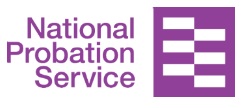About Us
Aspire Haven provides approved supported living accommodation for housing vulnerable homeless adults, people currently released from prison and people likely to become homeless across the West Midlands and surrounding areas.
We understand the challenges people face in securing safe housing and support, particularly due to social exclusion. Our mission is to provide high-quality, personalised support services that promote independence and well-being, making a positive impact on our service users' lives.
Our qualified staff deliver personalised support to enhance independence and improve quality of life.
-
We accept referrals for the following services:
people who are homeless or at risk of being homeless
People recently released from prison
People with substance dependencies
People with mental health issues
People with anger management or gambling addiction issues.
What We Do
Accommodation
We offer tailored housing solutions customised to meet the unique needs of our individual clients. Our properties are equipped with modern technology to ensure safety, comfort, and a supportive living environment.
Resettlement
We provide vital support for individuals recently released from prison, helping them successfully reintegrate into their communities. With a structured resettlement plan, we work to reduce the risk of reoffending and support long-term stability.
Money Management
We provide personalised one-on-one advice and guidance, focusing on financial management to create greater opportunities. Our support includes essential budgeting skills, access to online services, and the tools to make informed financial decisions with confidence and independence.
Mental Health and Wellbeing
Individuals recently released from prison often face significant challenges, making reintegration difficult. We provide comprehensive support to help rebuild confidence, boost self-esteem, and enhance overall physical, psychological, and mental well-being.
Learning and Life Skills
We collaborate with local councils and charities to provide our clients with specialised training and support programs, bridging skill gaps and improving employment opportunities.
Social Inclusion
We actively promote social inclusion to support the successful reintegration of individuals into the community, fostering a strong sense of belonging. Through partnerships with organisations, we provide mentorship, guidance, and encouragement to empower those we support.
Why We're the Right Choice?

A Home For You
Independent living requires both the right home and tailored support. We collaborate with partners, including prisons, probation services, and social services, to secure housing that meets the unique needs of our service users. Our supported living accommodations are equipped with modern technology to promote independence and reduce the risk of reoffending.
Empowerment Through Understanding
At Aspire Haven, we prioritise open communication and take the time to understand our service users. By adopting a person-centered approach, we empower individuals to express their preferences, needs, goals, and aspirations, fostering greater choice, control, and independence..
Safeguarding Service Users
We believe safeguarding is a shared responsibility, with all staff playing a crucial role in its effectiveness. Adopting a person-centered approach ensures a clear understanding of the needs and perspectives of our service users at all times.
Quality and Experience
With years of experience, we understand what quality support entails and strive to exceed minimum standards. Our services are designed to make a positive impact by promoting independence and well-being through personalised, tailored support.
Our Services
Housing and resettlement support
Substance misuse service
Intensive Supervision and Surveillance Programmes
Initiatives to reduce anti-social behaviour
Support for Men and Women, Ex-offenders and Homeless people
Referral
Admission to our Supported Living Accommodation starts with an initial assessment. We accept referrals from partner agencies, including Social Services, Local Authorities, and the NHS. Our referral eligibility criteria are outlined below:
Click Here to Download Our Referral Form.
Third Party Agencies
Frequently Asked Questions
-
What is support living accommodation?
Supported living accommodation refers to housing options that provide assistance and support services for individuals who may need help with daily activities due to physical, mental, or other health-related challenges.
-
Who is eligible for support living accommodation?
Eligibility criteria can vary, but generally, individuals with support needs, or those facing challenges in maintaining independent living may qualify for support living accommodation.
-
What types of support services are typically offered in support living accommodation?
Services can include assistance with activities of daily living (ADLs), medication management, meal preparation, housekeeping, transportation, and access to social and recreational activities.
-
How do I apply for support living accommodation?
The application process varies by location and facility. Generally, you can start by contacting local social services agencies, non-profit organisations, or housing authorities for guidance on the application process.
-
Can family members visit residents in support living accommodation?
Yes, many support living accommodations encourage family visits. However, specific visitation policies may vary, so it's recommended to check with the facility regarding their rules and regulations.
-
What safety measures are in place in support living accommodation?
Safety measures can include 24/7 staff availability, emergency response systems, secure entrances, and safety protocols. Facilities should provide information on their safety features and procedures.
-
What happens if my needs change while residing in support living accommodation?
Facilities typically conduct regular assessments to evaluate residents' needs. If there's a change in a resident's condition, the support and services provided can be adjusted accordingly. It's essential to communicate openly with the facility staff about any changes in health or requirements.









